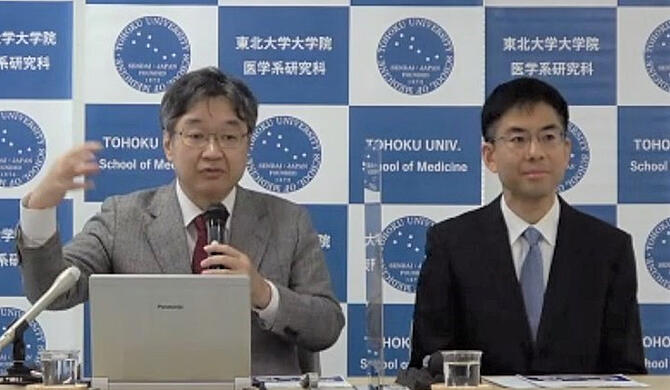Patients with diabetes gain appetite and tend to overeat when their blood glucose (or blood sugar) levels are high. Although this phenomenon has been known for a long time, the mechanism behind it is not yet well understood. A research group led by Assistant Professor Kei Takahashi and Professor Hideki Katagiri of the Department of Metabolism and Diabetes, Tohoku University Graduate School of Medicine and the Department of Metabolism and Diabetes, Tohoku University Hospital demonstrated in experiments using mice that secretion of leptin receptor (LepR) by the liver and inhibition of leptin action in the brain cause an increase in appetite.

According to Katagiri, "Originally, the mechanism of reducing excess energy expenditure and promoting appetite guaranteed survival during times of food shortage. However, in this era of excessive eating, this mechanism is disadvantageous. Our findings could soon be applied to the treatment of patients with diabetes, as drugs that enhance insulin action in the liver already exist." The results of the study were published in Cell Reports.
When food is consumed, the pancreas secretes insulin into the bloodstream. Conversely, when food intake is inadequate, the amount of insulin secretion, as well as the blood insulin level, decreases. Meanwhile, weight gain causes an increase in adipocytes (or fat cells), leading to an increase in the level of leptin (a hormone that circulates in blood). Leptin acts in the brain's hypothalamus to suppress appetite and enhance energy expenditure.
The research group found that the liver senses reduction in the insulin level and, in response, releases a protein named soluble LepR (sLepR) into the bloodstream. The group discovered that sLepR binds to leptin and suppresses its functions (enhancement of energy expenditure and reduction of appetite), thereby reducing energy expenditure and increasing appetite.
Furthermore, under the assumption that sLepR has an important role in survival during food deprivation, the group generated knockout mice that are unable to secrete sLepR. Food restriction did not affect the survival of regular mice. By contrast, approximately 50% of the knockout mice died after 5 weeks of food restriction. The research group discovered a mechanism by which the liver senses a reduction in energy intake and sends signals for survival.
The group also examined the association between blood glucose and blood sLepR levels in patients with diabetes. The results showed that patients with higher blood glucose levels had higher blood sLepR levels. Decreased insulin action in the liver causes increased blood glucose levels, which could be the reason for increased blood sLepR levels. This mechanism could explain the association between high blood glucose level and uncontrollable appetite.
This discovery can potentially be applied to prevent overeating in patients with diabetes. Although new drugs that break down sLepR could be developed in the future, Katagiri expects their findings to be applied to currently available therapeutic drugs.
Journal Information
Publication: Cell Reports
Title: Inter‐organ insulin‐leptin signal crosstalk from the liver enhances survival during food shortages
DOI: 10.1016/j.celrep.2023.112415
This article has been translated by JST with permission from The Science News Ltd. (https://sci-news.co.jp/). Unauthorized reproduction of the article and photographs is prohibited.




